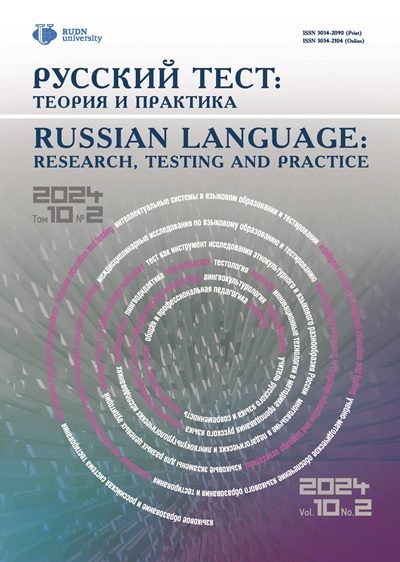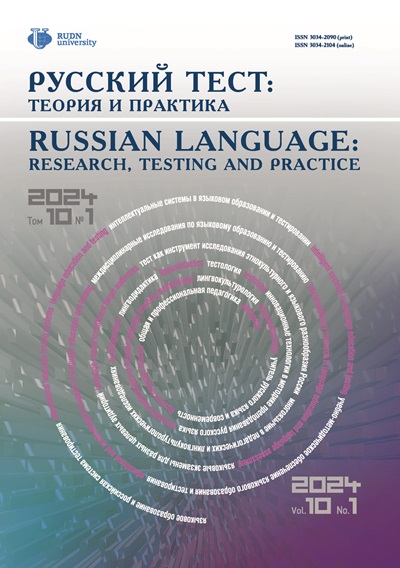Abstract
The study is devoted to the problematic aspects of using linguoculturological and linguo-country approaches in the creation of educational and methodological complexes in Russian as a foreign language using the Italian example. The author identifies the critical points of the identified approaches based on content analysis and discourse analysis of a target sample consisting of three educational and methodological complexes published in Italy from 2011 to 2023 and focused on levels A1 to B2 according to the CEFR system. The author gives a critical assessment of the inclusion of cultural elements in educational and methodological complexes for Russian as a foreign language, and also identifies important points that must be taken into account when developing such complexes. The importance of using, instead of linguo-country and linguocultural approaches, a critical approach to the interpretation of culture, taking into account all its complexity and versatility, is emphasized. Authors involved in the development of educational and methodological complexes in Russian as a foreign language are recommended to include cultural aspects in their works, while, on the one hand, observing the requirements for levels of proficiency in Russian as a foreign language, and on the other hand, avoiding conveying to learners essentialized or stereotypical information about Russian culture. Non-essentialized and diverse cultural representation allows for an emphasis on modernity and the abandonment of stereotypes.









